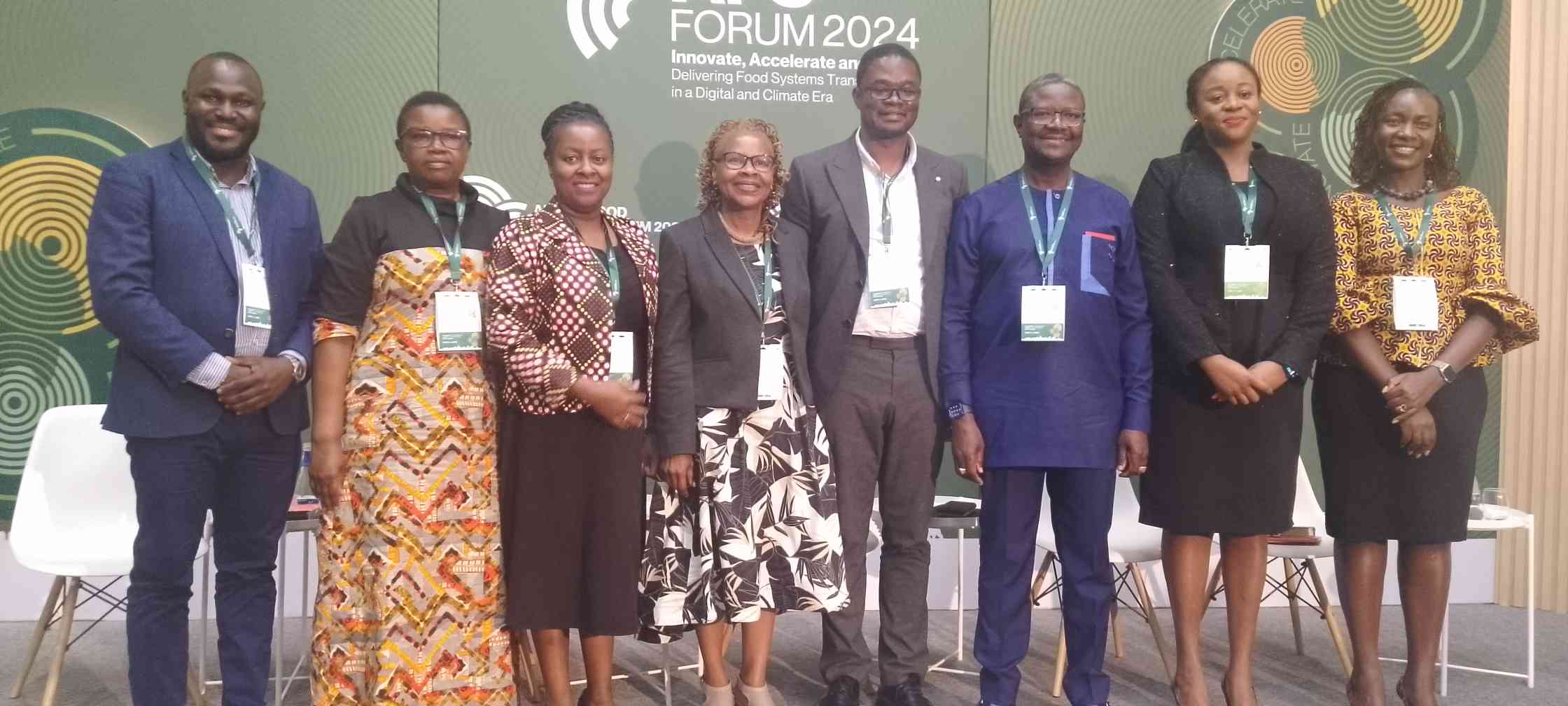|
Getting your Trinity Audio player ready...
|
Accelerating food systems transformation, particularly in a changing climate within a digital era, requires careful consideration of the needs, priorities, and capabilities of a diversity of men and women to contribute and benefit from agrifood systems.
These were the remarks of Deogratius Magero, the Youth Engagement Manager at the Centre for Agriculture and Bioscience International (CABI) while presenting during a session at the Africa Food Systems Forum in Kigali, Rwanda running from 2 to 6 September 2024 during a side event titled ‘Gender Responsive Approaches Driving Food Transformation.’
This side event is co-organized by African Women in Agricultural Research and Development (AWARD), Centre for Agriculture and Biosciences International (CABI), Global Solutions Initiative, and Global Panel on Agriculture and Food Systems for Nutrition.
“Despite numerous political commitments, the gender and age gap in agrifood systems is expanding. Evidence shows that closing the gender gap in agriculture would add nearly USD 1 trillion to the global economy, and 45 million fewer people would be at risk of food insecurity. However, existing laws and sociocultural norms, alongside deeply entrenched economic and political structural barriers, continue to widen women’s underrepresentation in leadership and decision-making roles.
‘’Therefore, while addressing everyone’s roles in production, processing, trading, and households’ food consumption, we must consider how the women are positioned in the agrifood systems, their accessibility to innovations, their vulnerability and resilience to climate change, their agency and participation in decision making and how the policy environment influences all these. In this session, we showcase CABI’s approaches, strategies, business models, and best practices that have worked to improve the engagement of young people and women in agrifood systems while creating income-generation opportunities through agribusiness,’’ Magero said.
Over the last two years, CABI has forged strategic partnerships with farmer cooperatives, government entities, private sector agribusinesses, and off-takers to facilitate meaningful youth engagement in agriculture in Africa, starting with Kenya, Uganda, and Zambia.
These collaborations have played a crucial role in providing youth with opportunities for training, mentorship, linkages for input and market access as well as resource mobilization.
Under the PlantwisePlus program, the CABI youth engagement initiatives have focused on empowering youth in agricultural service provision. Over 370 young people have received training and support to establish and run their agribusinesses, offering valuable advisory, pest management, and input supply services to farmers.
To facilitate ongoing learning and remote support for youth in agribusiness, THEY have recently launched an Entrepreneurship Course in Agribusiness on the CABI Academy, their online learning platform.
“We are looking forward to learning how young people can effectively engage with all the self-study modules in the Academy and how it can be used as part of our scaling strategy,” Magero added.
Addressing the same gathering, Edidah Ampaire, the Senior Program SpecialistInternational Development Research Centre (IDRC), underscored the need to increase the numbers of women and youth in the leadership of agri-food systems.
She highlighted some of the strategies that have worked in ensuring women’s meaningful participation in the leadership of agrifood systems.






